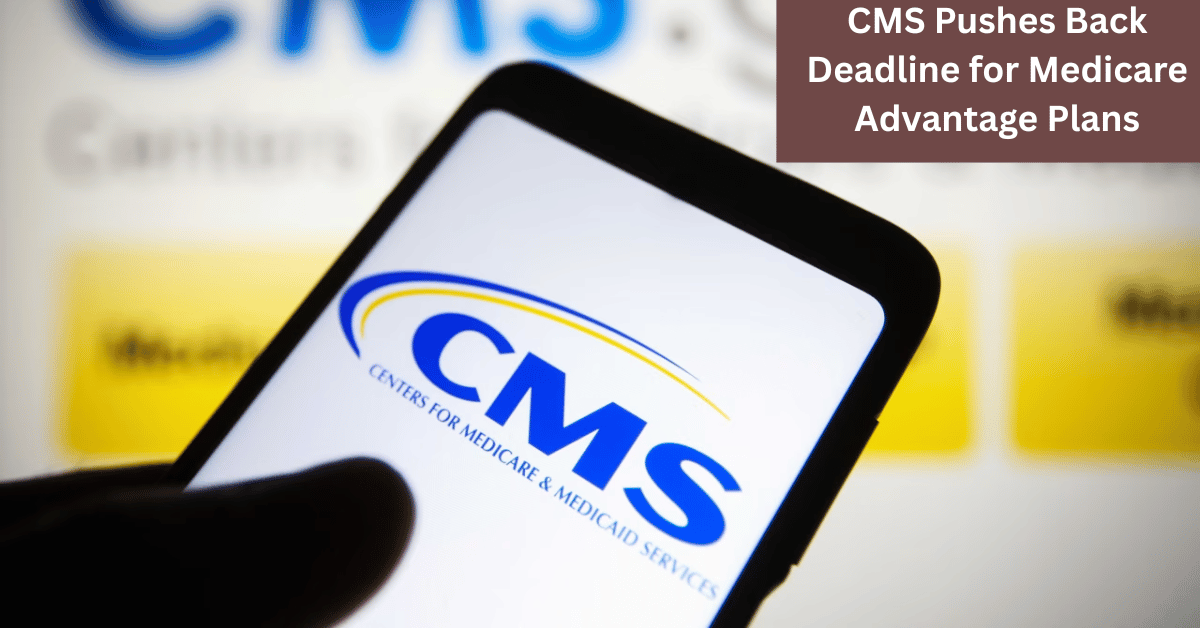The Centers for Medicare & Medicaid Services (CMS) has announced a delay in implementing a key regulation that requires Medicare Advantage plans to notify their members about unused benefits. This decision is drawing attention across the healthcare industry as it impacts how consumers engage with their Medicare Advantage coverage.
The new rule was designed to promote greater awareness among Medicare Advantage beneficiaries about benefits they have yet to use, encouraging them to maximize their coverage. However, with the postponement, both insurers and members will have to wait longer to see how these changes could influence claims and healthcare decisions.
Background of Medicare Advantage Plans and Member Benefits
Medicare Advantage, also known as Part C, allows Medicare beneficiaries to receive their benefits through private health plans approved by CMS. These plans often include additional perks beyond Original Medicare, such as dental care, vision services, gym memberships, and wellness programs.
Despite these valuable offerings, many enrollees remain unaware of all the benefits available under their plans. Statistics reveal a significant percentage of Medicare Advantage members do not fully utilize their additional benefits, which can lead to underuse of valuable health services that could improve their well-being.
Proposed Notification Rule and Its Intended Purpose
The CMS rule in question was intended to mandate that Medicare Advantage organizations send regular notifications to their members, alerting them to unused benefits before the annual enrollment period ends. The goal is to help beneficiaries track and use available perks, thereby enhancing their healthcare experience and encouraging preventive care.
This transparency-driven approach was expected to foster more proactive health management among members. Notifications were envisioned as a simple yet effective tool to minimize benefit underuse, reduce avoidable medical complications, and maximize the value of Medicare Advantage plans.
Reasons Behind the Delay in Implementing the Rule
The CMS announced the delay due to ongoing concerns from insurance providers about logistical challenges and compliance complexities. Many plans have expressed the need for more time to adapt their systems and communication strategies to meet the new requirements efficiently.
Additionally, CMS is reviewing feedback from stakeholders to ensure the rule’s practicality and effectiveness. This reassessment aims to balance regulatory goals with industry realities so that the eventual implementation is both feasible and impactful.
Implications for Medicare Advantage Members
The delay means members will not receive timely alerts about unused benefits this upcoming year, potentially continuing the trend of underutilization. Without notifications, many beneficiaries might miss out on services that could enhance their health and quality of life.
For younger Medicare Advantage enrollees — a growing demographic – this could limit their engagement with wellness offerings and preventive care. Increased awareness through notifications could help these members understand and utilize benefits better, encouraging healthier habits beginning at an earlier age.
Challenges Faced by Insurance Providers
Insurance providers must revamp their administrative processes to comply with the notification requirements, which involves data integration, member communication platforms, and compliance verification systems. These operational demands require considerable investment and coordination across departments.
Moreover, ensuring that notifications are accessible and easily understood by diverse member populations is a significant challenge. Plans must craft messaging that resonates with all age groups, literacy levels, and languages represented in their clientele.
Analysis of Medicare Advantage Benefit Utilization Rates
| Benefit Type | Average Utilization Rate Among Members | Potential Impact of Notifications |
|---|---|---|
| Dental Services | Less than half of eligible members use | Increased awareness could grow usage by up to 25% |
| Vision Care | Approximately 40% utilization | Notifications may encourage annual exams and eyewear updates |
| Fitness and Wellness Programs | Under 30% participation | Member alerts could boost engagement significantly |
| Hearing Aids and Services | About 35% usage rate | Improved communication might enhance accessibility |
These utilization rates show a clear opportunity to increase member engagement through better information delivery. Regular notifications could help members take full advantage of their plans, potentially improving overall health outcomes.
Benefits of Timely Notifications for Medicare Advantage Members
Sending proactive reminders about unused benefits empowers members to make informed choices regarding their healthcare. It can lead to earlier detection of health issues through preventive services, reduce emergency care visits, and improve chronic condition management.
Furthermore, notifications foster transparency and trust between members and their plans, which may result in higher satisfaction and retention rates. Educated members are more likely to actively participate in managing their health, leading to positive long-term impacts.
Potential Economic Impact on Medicare Advantage Plans
From an economic perspective, helping members maximize benefits might initially increase claims costs as utilization rises. However, long-term savings could emerge through reductions in hospitalizations and expensive medical interventions due to better preventive care.
Insurance companies that successfully educate and encourage utilization might see improved member health, lower administrative costs related to claim disputes, and stronger competitive positioning in the Medicare marketplace.
What Younger Medicare Advantage Enrollees Should Know
Medicare Advantage is no longer exclusively for seniors; many younger individuals with disabilities or chronic conditions also qualify. These members may benefit greatly from enhanced communication about their plan options and benefits.
Understanding upcoming changes and notifications can help younger enrollees better navigate their coverage, prevent health complications, and maintain an active lifestyle. Staying aware of benefit availability is crucial for managing health proactively at any age.
How Members Can Prepare During the Delay Period
Even with the delay in official notifications, members can take proactive steps to familiarize themselves with their benefits. Reviewing plan materials, contacting customer service, and accessing online member portals are excellent ways to stay informed.
Members should also engage their healthcare providers to discuss covered services and preventive care options to maximize the value of their Medicare Advantage plans ahead of any regulatory changes.
Future Outlook and Expectations for Implementation
CMS is expected to finalize the new rule and provide a clear timeline for compliance in the near future. Industry experts anticipate the notification requirement will eventually become standard practice for Medicare Advantage plans nationwide.
Upon implementation, plans will likely leverage technology and data analytics to optimize member communications and track notification effectiveness. These innovations could reshape how Medicare Advantage enrollees interact with their benefits.
Summary
The CMS delay in requiring Medicare Advantage plans to notify members about unused benefits has significant implications for beneficiaries and insurers alike. While the postponement provides additional time for industry adjustment, it may also perpetuate low awareness and utilization of valuable services.
Greater transparency and communication are vital to helping members, especially younger enrollees, fully leverage their healthcare options. As policymakers and insurers prepare for eventual implementation, members should remain proactive in understanding their benefits and health needs.




